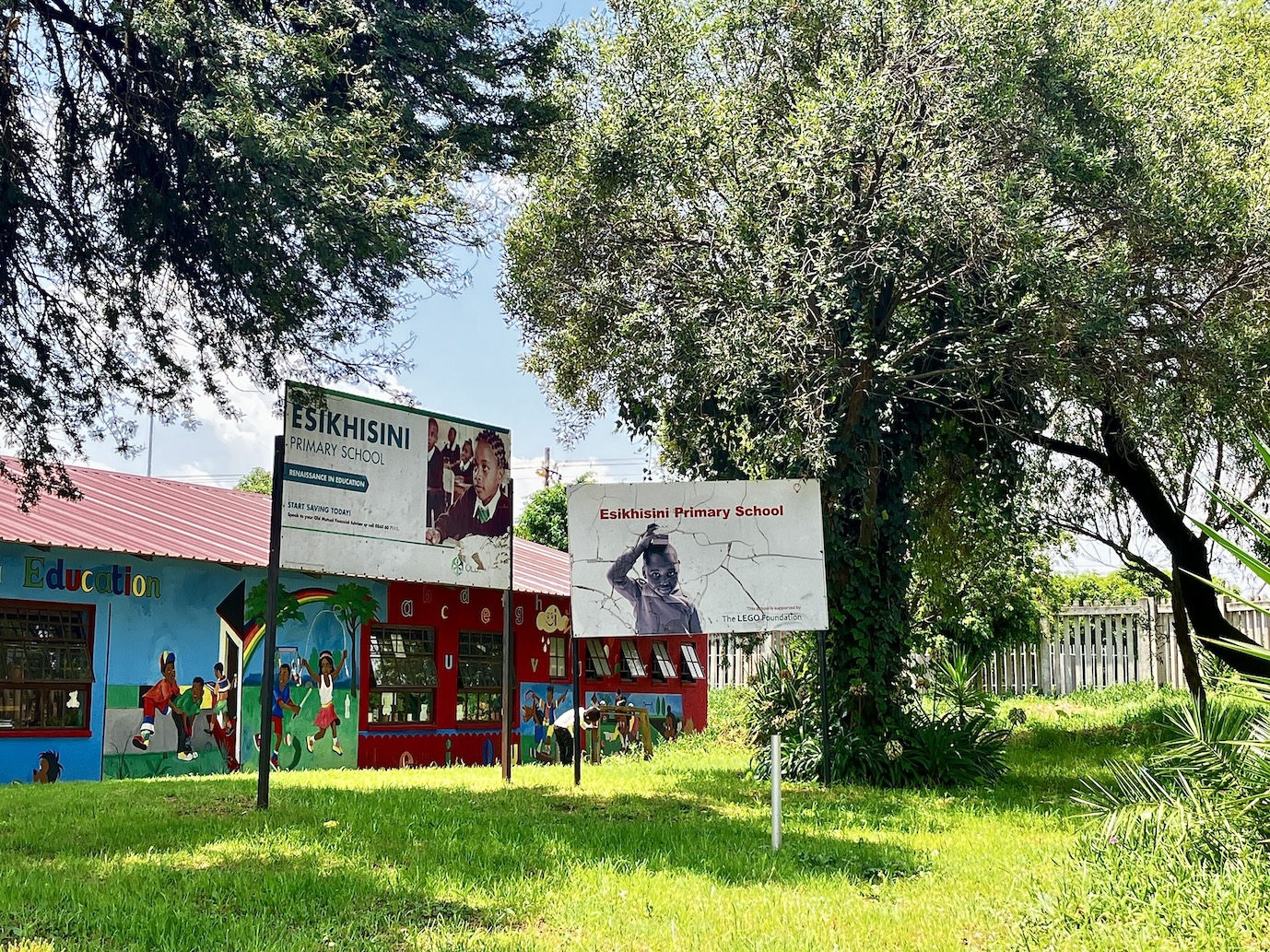This primary school was the focus of political campaigning this week. Photo: Masego Mafata
Using xenophobia to campaign is against the Electoral Code of Conduct, say activists
By Masego Mafata
On Monday Patriotic Alliance’s deputy president Kenny Kunene and other party members picketed at a school in Saulsville, Pretoria.
Afterwards Kunene wrote on X/Twitter: “Today we went to Esikhisini Primary School to make sure that Shona is not taught at that school and we also made a call for Chair of SGB who is a Zimbabwean to be removed. Indeed some kids [are] from Zim and they must be replaced by SA kids.”
This comment has been retweeted over 500 times and liked nearly 2,000 times.
When GroundUp contacted the Patriotic Alliance’s national spokesperson Steve Motale, he said that the picket was a response to complaints from “disgruntled teachers” about plans to introduce Shona as a language subject at the school.
Yet Shona is not taught in Esikhisini Primary School and the Gauteng education department denies it has received any formal application for Shona to be taught at the school.
According to department spokesperson Steve Mabona, “Principals are allowed to apply for foreign languages to be taught at their respective schools.”
Mabona said the application would be accompanied by minutes of school governing body (SGB) and parent meetings to show that there is consensus on the introduction of the subject.
Immigration and asylum seeker rights activists are calling on political parties to stop using foreigners as “scapegoats” when campaigning for votes for the upcoming 2024 elections.
Immigrant rights organisations Kopanang Africa Against Xenophobia (KAAX) and People Against Suffering, Oppression and Poverty (PASSOP), have criticised the lack of “political will” to ensure that political parties refrain from making anti-foreigner sentiments when they campaign.
General Moyo, from Kopanang Africa Against Xenophobia, said, “Political parties using xenophobic messages to gain support are in violation of the Electoral Code of Conduct as enshrined in the Electoral Act and we’ve seen this from the PA and a whole range of other political parties.”
The code of conduct prohibits the publishing of false information and the use of language which may provoke violence, he said.
Given the history of xenophobic violence in South Africa, gatherings where people are mobilised using anti-foreigner statements run the risk of violence directed at any immigrants living in South Africa.
PASSOP’s director Victor Mdluli Chikalongwe, said: “There is no political will from the government and political parties to determine how issues that communities are facing can be addressed, without blaming foreigners.”
All schools have a process to elect their SGB chairs; it is unclear on what basis a politician can demand that a chairperson be removed because of their country of origin.
Zimbabwean learners
The “high number of Zimbabwean learners at the school” was another reason the Patriotic Alliance gave for the picket. “We cannot allow a situation where South African kids, whose parents pay taxes, find themselves without school while Zimbwean learners have space in our schools and many other public facilities,” said Motale.
But according to the department, only 20% of learners at the school are foreign nationals.
Mabona told GroundUp: “The department uses the online system to process such applications. No special preference is given to foreign nationals at the expense of South Africans.”
To this, Chikalongwe added: “Foreigners have the right to live, learn and access health services in South Africa.”
Published originally on GroundUp.
Follow African Insider on Facebook, Twitter and Instagram
Source: GroundUp
Picture: GroundUp
For more African news, visit Africaninsider.com


